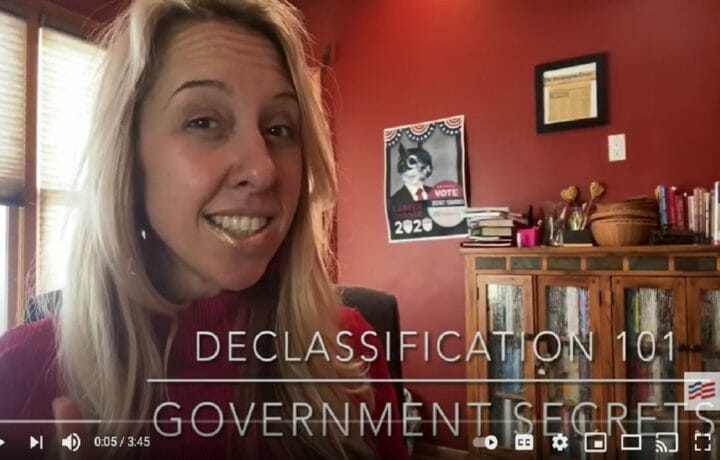Declassification rules are a frequent subject of debate. Frequently criticized for overclassification, the Open Government movement has pushed for more sharing of government information, as well as questions as to whether information that is classified should be.
The purpose of classification is to support national security. Wikileaks disclosures aren’t an issue because the information is embarrassing to the government, it’s an issue because the information puts national security workers and adversaries at risk. Clandestine workers and informants have been compromised, as well as American tradecraft and intelligence policies and procedures. The Insider Threat movement of the past five years seeks to ensure that information that is classified stays that way.
That doesn’t mean that all of the information the government gathers – even that of a classified nature – will stay that way. Information can be declassified for a variety of reasons. The largest dumps of previously classified data come through automatic declassification. After 25 years, an agency must declassify documents unless they fall within nine exemptions outlined through Executive Order 13526. All information that is declassified must first be reviewed by all agencies with interest in the information included. The most recent 25-year data dump included everyone’s favorite – historic CIA research into UFOs.
Another Way to Access Government Information: FOIA
Declassification is likely in the news today because many are wondering if they can finally find out the ins and outs of what occurred during the previous presidential administration. But just because a new chief executive has moved in doesn’t mean you can immediately find out everything about the one who has moved out. A Freedom of Information Act request may be used to find certain information, but the request needs to be specific. A general ‘tell me all your secrets’ request to the government will just not do it. In addition, the FOIA process is not comprehensive – there are 9 specific exemptions, and that includes an exemption for classified information.
FOIA Exemptions:
- Exemption 1: Information that is classified to protect national security.
- Exemption 2: Information related solely to the internal personnel rules and practices of an agency.
- Exemption 3: Information that is prohibited from disclosure by another federal law.
- Exemption 4: Trade secrets or commercial or financial information that is confidential or privileged.
- Exemption 5: Privileged communications within or between agencies, including those protected by the:
- Deliberative Process Privilege (provided the records were created less than 25 years before the date on which they were requested)
- Attorney-Work Product Privilege
- Attorney-Client Privilege
- Exemption 6: Information that, if disclosed, would invade another individual’s personal privacy.
- Exemption 7: Information compiled for law enforcement purposes that:
- 7(A). Could reasonably be expected to interfere with enforcement proceedings
- 7(B). Would deprive a person of a right to a fair trial or an impartial adjudication
- 7(C). Could reasonably be expected to constitute an unwarranted invasion of personal privacy
- 7(D). Could reasonably be expected to disclose the identity of a confidential source
- 7(E). Would disclose techniques and procedures for law enforcement investigations or prosecutions, or would disclose guidelines for law enforcement investigations or prosecutions if such disclosure could reasonably be expected to risk circumvention of the law
- 7(F). Could reasonably be expected to endanger the life or physical safety of any individual
- Exemption 8: Information that concerns the supervision of financial institutions.
- Exemption 9: Geological information on wells.
Privacy Act Request
If you’ve held a security clearance in the past and would like to get a copy of your background investigation, you’ll submit a Privacy Act request. If you currently have access to classified information, you can make the same request through your current security officer.



